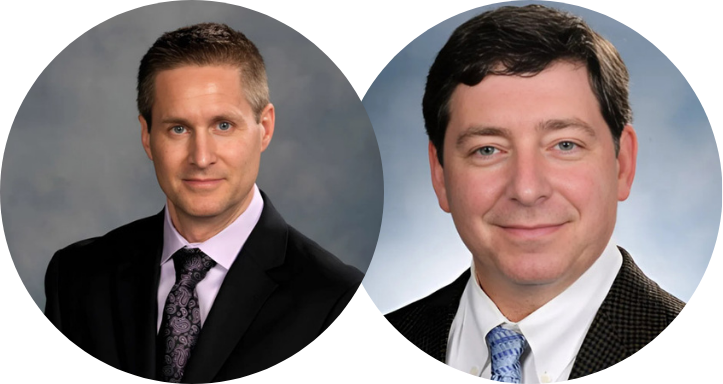ABPPSP: Wellness, Resiliency, and Suicide Prevention Practices in Police and Public Safety Psychology
Presented by: Michael Craw, PhD, ABPP and Jay Nagdimon, PhD, ABPP

This on-demand professional training program on Wellness, Resiliency, and Suicide Prevention Practices in Police Public Safety Psychology is presented by Micheal J. Craw, Ph.D., ABPP, and Jay Nagdimon, Ph.D., ABPP, in partnership with The American Board of Police and Public Safety Psychology (ABPPSP).
This program provides critical knowledge for developing wellness and resiliency programs within law enforcement organizations. Integrated and structured programs, including in-house psychological services, peer support, chaplains, and wellness coordinators, are described. By creating a wide array of wellness and resiliency programs, agencies can provide service across the career span from academy training through retirement. Beyond treating psychological problems, the future of branding wellness programs in law enforcement includes peak performance, support for injured officers, including pain management, nutritional counseling, increasing social support through technology and social media, and leadership development. Resiliency programs initiated and driven by multiple ranks, both civilian and sworn, and supported by professional consultation from Police Psychologists generate the most sustained change. How wellness and resiliency programs relate to suicide prevention and alcohol misuse prevention in law enforcement are discussed. For those currently or aspiring to provide direct clinical services to police officers, the sub-specialty of suicide assessment in law enforcement clinical settings is described.
Upon completion of this training, participants will be able to:
Key topics covered in this training include:
Service for wellness and resiliency
Police culture
Clinical services
Specialized services
Clinical and fieldwork
Suicide prevention
Psychologist self-care
Contemporary issues

We are proud to partner with The American Board of Police and Public Safety Psychology (ABPPSP) for this training. ABPPSP became a fully affiliated specialty board of the American Board of Professional Psychology (ABPP) on October 21, 2011. Police and Public Safety Psychology is concerned with assisting law enforcement and other public safety personnel and agencies in carrying out their missions and societal functions with optimal effectiveness, safety, health, and conformity to laws and ethics. It consists of the application of the science and profession of psychology in four primary domains of practice: assessment, clinical intervention, operational support, and organizational consultation.
Palo Alto University, Continuing & Professional Studies (CONCEPT) is approved by, recognized by, or maintains sponsorship provider status with the following boards and agencies. We maintain responsibility for all content in our CE/CPD programs. For more information, visit here.
American Psychological Association (APA): Approved sponsor of continuing education for psychologists.
Association of Social Work Boards (ASWB): Approved continuing education provider (ACE program, Provider #1480), 11/22/2023–11/22/2026.
Canadian Psychological Association (CPA): Approved to sponsor continuing education for psychologists.
National Board for Certified Counselors (NBCC): Approved Continuing Education Provider (ACEP No. 7190).
Palo Alto University, Continuing and Professional Studies (CONCEPT) is approved by the American Psychological Association to sponsor continuing education for psychologists. Palo Alto University, Continuing and Professional Studies (CONCEPT) maintains responsibility for this program and its content. Palo Alto University, Continuing and Professional Studies (CONCEPT), is approved by the Canadian Psychological Association to offer continuing education for psychologists. Palo Alto University, Continuing and Professional Studies (CONCEPT), SW CPE is recognized by the New York State Education Department’s State Board for Social Work as an approved provider of continuing education for licensed social workers #SW-0356 and the New York State Education Department’s State Board for Mental Health Practitioners as an approved provider of continuing education for licensed mental health counselors. #MHC-0073. Palo Alto University, Continuing and Professional Studies (CONCEPT) has been approved by NBCC as an Approved Continuing Education Provider, ACEP No. 6811. Programs that do not qualify for NBCC credit are clearly identified. CONCEPT Professional Training, #1480, is approved to offer social work continuing education by the Association of Social Work Boards (ASWB) Approved Continuing Education (ACE) program. Organizations, not individual courses, are approved as ACE providers. State and provincial regulatory boards have the final authority to determine whether an individual course may be accepted for continuing education credit. CONCEPT Professional Training maintains responsibility for this course. ACE provider approval period: 11/22/23-11/22/26. Social workers completing this course receive (clinical or social work ethics) continuing education credits.